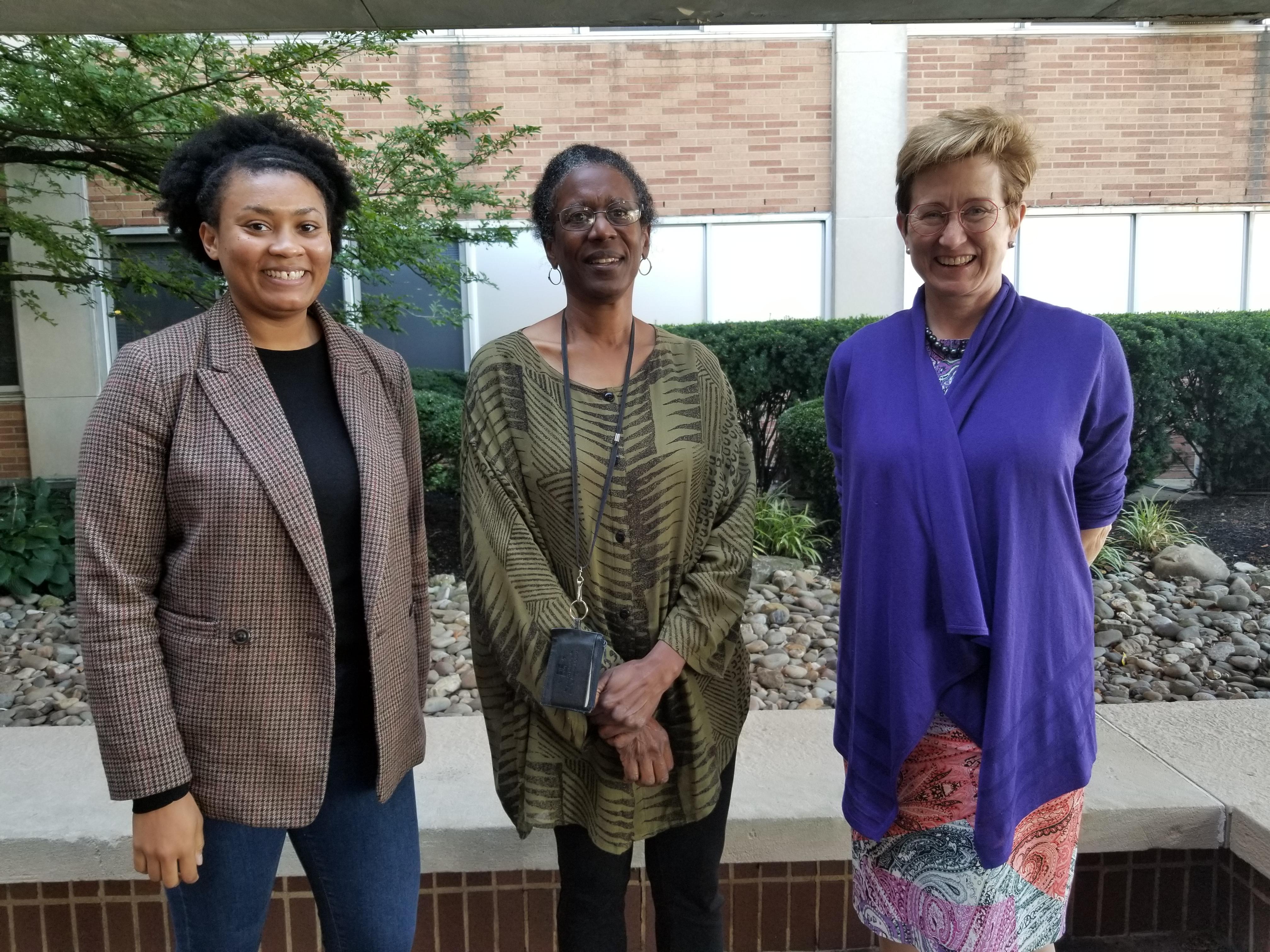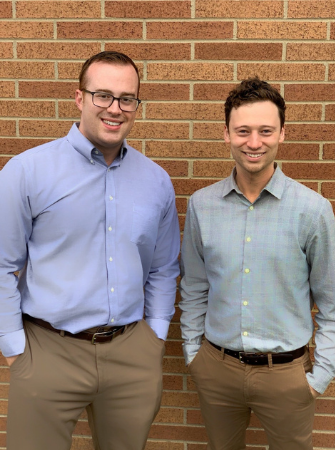The Department of Psychiatry is involved in collaborative, multidisciplinary research efforts throughout the Lewis Katz School of Medicine at Temple University, the University, and with members of our Adjunct Faculty. Some of our projects and collaborations are discussed below.
For more information about research efforts in the Department of Psychiatry, particularly for interested residency candidates, or to discuss a patient related clinical trial please contact: Mary F. Morrison, MD, MS, Vice Chair for Research, Department of Psychiatry, Professor of Psychiatry, Internal Medicine and Center for Substance Abuse Research at: [click-for-email].
Center for the Development of Novel Medications for Cocaine Use Disorders
Cocaine addiction is a devastating disorder. In Philadelphia, the past 5 years have seen a rapid increase in overdose deaths associated with cocaine. Dr. Mary F. Morrison, Vice Chairperson for Research in the Department of Psychiatry, Dr. M. Ingre Walters, Associate Professor of Psychiatry and Dr. Sarah Tabi, Ms. Yaminah Carter, Dr. Linda Callans and Ms. Joya Maser have been studying the effect of clavulanic acid as a treatment for cocaine use disorder with funding from the National Institute of Drug Abuse. There is currently a multisite outpatient efficacy study for cocaine use disorder treatment.

Center for Substance Abuse Research
This NIH-funded research center serves to facilitate multidisciplinary research on drugs of abuse and the consequences of their use, whether abused or therapeutic. This mission encompasses understanding the effects of the drugs on various systems in the body, as well as the study of the receptors to which the drugs bind, the signal transduction pathways they evoke, alterations that they induce in gene expression, neuronal pathways that they stimulate, and behaviors that they induce. Anjali M. Rajadhyaksha, PhD, Professor of Neural Sciences, is the Director of the Center
Research on substance abuse is particularly important to the Department because a significant proportion of the patients treated by us have problems with drug abuse. Substance abuse is an important contributing factor to other psychiatric disorders. The course of psychiatric illness can be affected by co-existing substance abuse, which can also impede effective treatment. A better understanding of the social, psychological and biological factors influencing vulnerability to and treatment of substance abuse will relieve disease burden and improve outcomes for many of our patients.
Clinical Trials
Inpatient Agitation Trial. An open-label, randomized, active control inpatient trial evaluating sublingual dexmedetomidine for moderate to severe agitation in inpatients with schizophrenia or bipolar disorder: Drs. Faden (PI), Musselman, Dalseth and Veigne are the faculty on this trial.
Psychiatry and Thoracic Medicine Collaboration
Anxiety in COPD Patients. Drs. Ryan Ser denes and Jacob Weiss (now former residents) are co-first authors (pictured right) on a 2023 study entitled “Association between COPD Symptom Severity, Exacerbation Risk, and Depression and Anxiety Symptoms in the Spiromics Cohort”, which was published in the Journal of the Academy of Consultation Liaison Psychiatry. Other Temple coauthors include: Drs. Mary F. Morrison (Psychiatry) Victor Kim, (Thoracic Medicine) and Huaqing Zhao (Biostatistics). Currently, the group is investigating the effect of anxiety and psychotropic use on functional COPD measures in the Spiromics cohort. The team has been joined by Drs. Qianyu Wang and Pratheek Mangini, residents in Psychiatry and Dr. Lijo Illipparambil (Thoracic Medicine).
denes and Jacob Weiss (now former residents) are co-first authors (pictured right) on a 2023 study entitled “Association between COPD Symptom Severity, Exacerbation Risk, and Depression and Anxiety Symptoms in the Spiromics Cohort”, which was published in the Journal of the Academy of Consultation Liaison Psychiatry. Other Temple coauthors include: Drs. Mary F. Morrison (Psychiatry) Victor Kim, (Thoracic Medicine) and Huaqing Zhao (Biostatistics). Currently, the group is investigating the effect of anxiety and psychotropic use on functional COPD measures in the Spiromics cohort. The team has been joined by Drs. Qianyu Wang and Pratheek Mangini, residents in Psychiatry and Dr. Lijo Illipparambil (Thoracic Medicine).
Research by Residents
Caesar Imperio, MD
Dr. Imperio was on the Residency Research track (RRT) during his Psychiatry residency. Currently he is doing an Addiction Psychiatry Fellowship at Columbia University. A detailed description of the RRT is provided in the Subspecialty Track Section of the Residency Program. This track provides protected time and mentorship to residents with outstanding research potential and/or interest. Caesar was working in the laboratory of Dr. Mathieu Wimmer in the Department of Psychology at Temple University. He is interested in what contributes to relapse in people with substance use disorders and has been investigating that with preclinical studies. He was exploring the transcriptomics of female rats who self-administered morphine and then had enforced drug abstinence, to determine what molecular changes endure in brain regions for addiction. Dr. Imperio will be adding clinical research to his skills during his Addiction Fellowship at Columbia.
Tara Thompson-Felix, MD
Dr. Thompson-Felix investigated changes in human fetal brains related to chronic exposure to opiate related drugs, in the laboratory of Dr. Mat Wimmer in the Department of Psychology at Temple.
Tara wrote a commentary on “Nanovesicles: A Window into Neuronal Functioning” with Dr. David A. Ross at Yale. Read it: PMID: 31046939 and DOI: 10.1016/j.biopsych.2019.03.976
Dr Thompson-Felix is currently doing a Child Psychiatry Fellowship at Yale and pursuing a PhD degree.
Temple Medical Students Move Research Forward
During the summer, Temple medical students work with Psychiatry faculty on research projects and initiatives. They have the opportunity to study and design a research project of their own which is reviewed by the Vice Chair of Research.
These are our 2024 summer research Temple medical students. From left to right: Drs. Morrison, Tabi, Walters, Hannah McBride (medical student), Shayan Jalali (medical student), Linda Callans (research specialist and retired MD)
